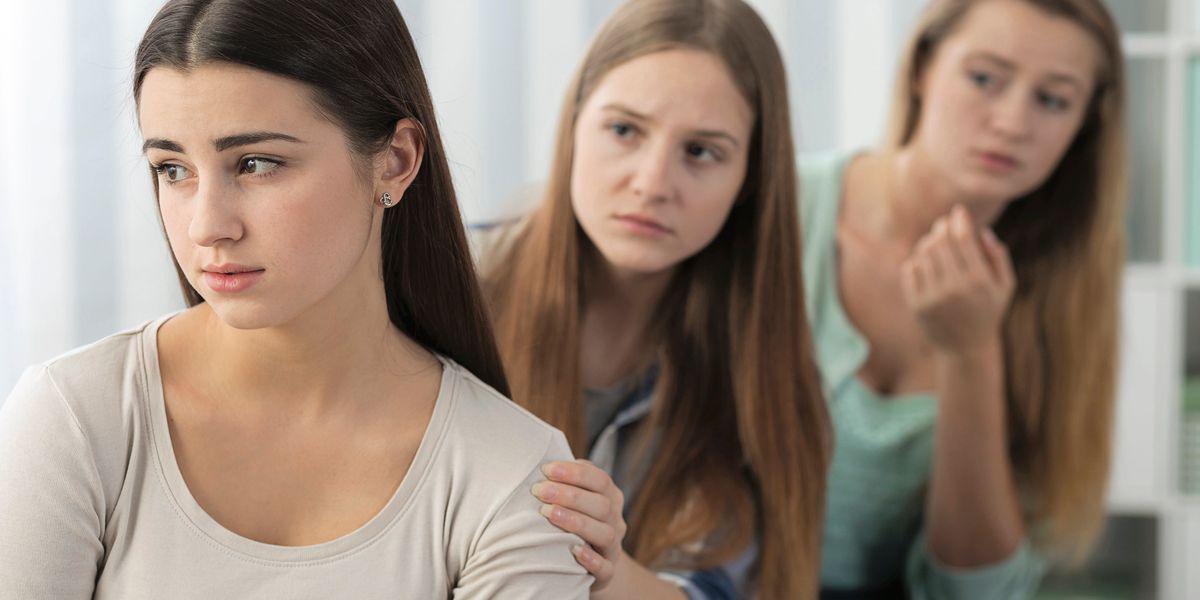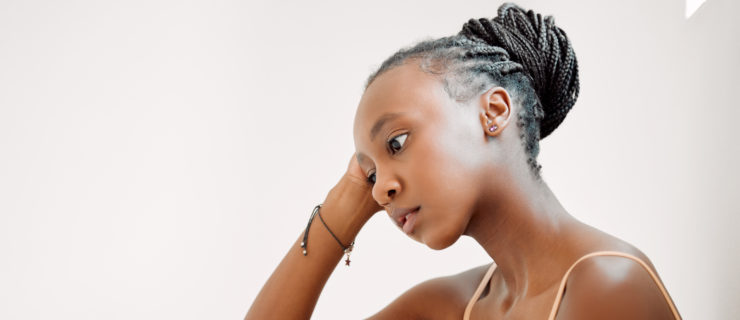Help! I Think My Friend Has an Eating Disorder
Nadine Kaslow, a psychologist who works with dancers at Atlanta Ballet, says one of the most common questions she’s asked is, “What should I do if I think my friend has an eating disorder?” Research shows that, compared to the general population, dancers are three times more likely to suffer from eating disorders. Experts agree that early detection and treatment is crucial. Unfortunately, while adults—like teachers and studio directors—should be keeping an eye out for warning signs, the people most likely to first notice a dancer’s issues with food are her friends at the barre.
So what do you do if you suspect a friend is suffering? You don’t want to be accusatory, but you know eating disorders are cause for great concern. At the very least, Kaslow advises you to trust your instincts and do something, whether it’s confronting your friend directly or speaking to an adult. “If you’re worried about someone, you should take it seriously,” she says. “You can’t be a bystander—the longer somebody waits to get an eating disorder under control, the harder it is.”
Signs a friend may be suffering
“There are many signs that a friend may be struggling with an eating disorder,” says Nancy Linden, who works with The Emily Program—a nationally recognized eating disorder awareness and treatment program. “However, due to the secretive nature of many eating disorders, they can be tough to spot.” You may notice a friend’s dramatic weight gain or loss, says Linden, or that she’s frequently commenting on her body or food. Excessive exercise can be another sign, as well as physical symptoms like bruising, dry skin, and brittle hair.
Kaslow adds that your friend may not eat at times when others do, or may refuse to eat in front of people. “Sometimes people with eating disorders won’t want to change in the dressing room and will retreat to the bathroom instead,” she says. She adds that a dancer suffering from an eating disorder may deflect their issues onto someone else and become fixated on how thin other people are. “Sometimes they’ll be the ones making brownies and bringing them in,” she says. “They’ll make treats for others, but will make a point not to eat them.”
Confronting your friend
Kaslow says it’s best that you talk with your friend before speaking to anyone else. While it’ll be a difficult conversation, and your friend may deny having an issue, she deserves to hear from you directly before you tell someone else. “Don’t be critical,” she says, adding that you should make a lot of “I” statements: I’m worried about you. I’ve noticed these specific behaviors and it makes me scared. And most importantly, How can I help you?
Kaslow says that she’s also seen a group of dancers approach a friend together, but says that whether or not that is appropriate is determined by the dynamic of a particular situation. “I do think it’s important to talk to others about your concerns,” she says, “not in a gossipy way, but in a genuinely caring and kind way.”
If you’re feeling nervous, remember that it’s most crucial not to be a bystander. Emily Cook Harrison, a dietitian and founder of Nutrition for Great Performance, says that the body has many natural, biological checks and balances to keep it alive and active when in a state of energy restriction during an eating disorder. “The longer this goes on, the worse the potential damage can be to the body,” she cautions. “Energy deficits sustained regularly over time will increase a dancer’s risk for injury—both fatigue-type injuries and stress fractures.”
 Call the Emily Program at 866-247-6440 if you don’t feel like you have anyone to talk to and need advice on how to get help. (Getty Images)
Call the Emily Program at 866-247-6440 if you don’t feel like you have anyone to talk to and need advice on how to get help. (Getty Images)
Tell an adult
Once you’ve spoken with your friend, continue to monitor the situation. Even if your friend insists that nothing is wrong, if you’re still worried, you must involve an adult. “Go to someone you think will be kind about it,” says Kaslow. She encourages students to reach out to a teacher or someone at the school if there is a caring and safe person to talk to. Marjorie Grundvig, co-director of the Pittsburgh Ballet Theatre School, says that students shouldn’t feel afraid to talk to their teachers. “A teacher will be able to discuss appropriate steps for the dancer who may be struggling,” she says. “Teachers want the best for their students, and their health always comes first.”
In some cases you may feel most comfortable talking to your own parents first. Kaslow says that it may be easiest to ask your mom or dad to talk to your friend’s parents, if they know each other. She also encourages dancers to ask their school to bring in professionals—nutritionists and/or mental health professionals—if they see food issues are a problem. “When someone has an eating issue, it can be contagious,” Kaslow says.
It’s important to know that your friend may be upset and even angry when you step in to try to help them. That’s a natural response, and it doesn’t mean your friendship is over. Ultimately, it’s too important that she receive help to allow your own doubt to get in the way. “The truth is that eating issues are very common and sometimes dancers don’t know if it’s really serious,” she says. “It’s not really your job to figure out where that line is as a student. If you’re worried about someone, that’s enough. It’s an adult’s job to figure out what to do about it.”
A version of this story appeared in the March 2019 issue of
Dance Spirit with the title “Help! I Think My Friend Has an Eating Disorder.”




